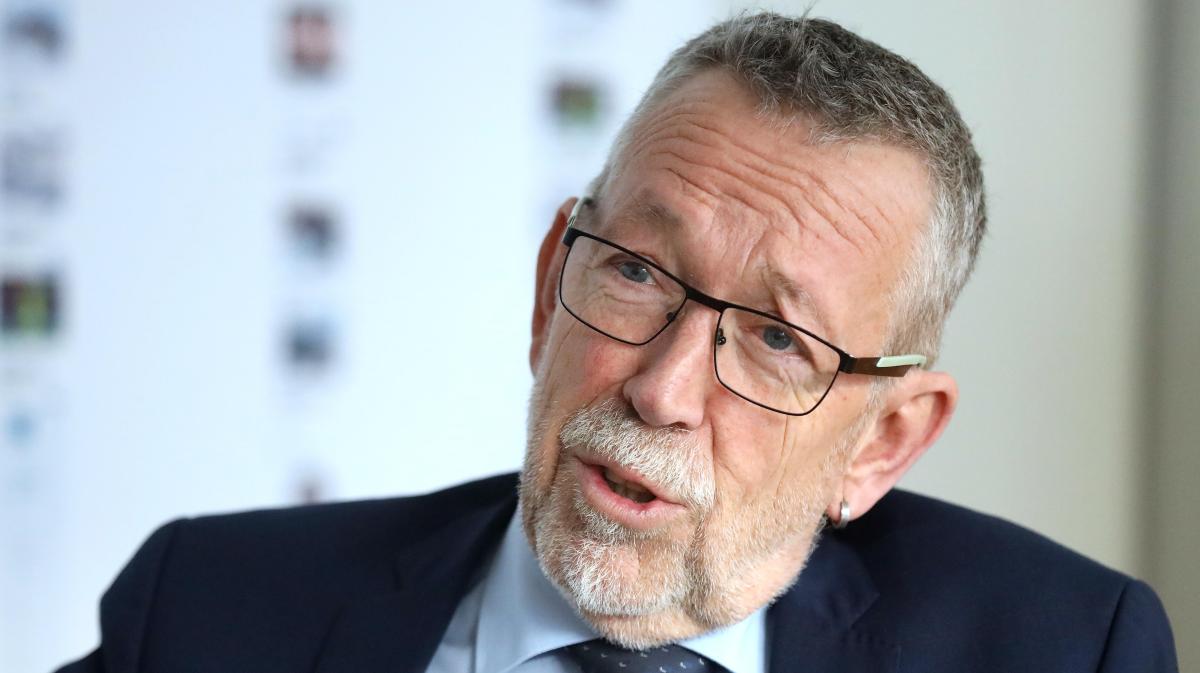AFP, published on Friday, January 28, 2022 at 01:56
The global shortage of electronic components is crippling many industries, from electronics to automotive, but not Apple, which broke new sales records during the holiday season, making nearly $124 billion in revenue in three months.
iPhone sales topped $71 billion, driven by strong demand for the iPhone 13 lineup, particularly in China.
In all, the tech giant posted a net profit of $34.6 billion in the first quarter of its staggered fiscal year.
“Despite the pandemic, we have reached the highest revenues in Apple’s history,” said boss Tim Cook on Thursday during a conference with analysts.
“We achieved records in both developed and emerging markets and saw revenue growth in all of our categories except iPad, which is being held back by supply chain challenges,” he continued. .
Apple now has 1.8 billion devices in use worldwide.
The iPhone maker’s results were highly anticipated, in light of the global shortage of semiconductors, caused by high demand for connected devices and services and production delays at factories due to Covid-19.
“We believe that Apple sold more than 40 million iPhones during the holiday season, a record for the Cupertino group, despite the shortage,” said Dan Ives, an analyst at Wedbush. “The flea issue is temporary, in our view.”
– The Chinese engine –
Apple, like other companies, had to lower its production targets for the end of 2021, in particular for the iPhone 13, released in the fall.
And Tim Cook had indicated in October that supply problems could cost $6 billion in holiday season revenue.
But the worst seems to be over for the Californian group, which expects fewer difficulties for this quarter than the previous one.
“So far, Apple has handled the shortage better than most companies,” noted eMarketer analyst Yoram Wurmser.
The popularity of iPhones has particularly taken off in China, where Apple has once again become the country’s leading smartphone seller. This is the first time in six years, according to a study by Counterpoint Research published Thursday.
The American group’s mobile phones represented 23% of this market in the last quarter, despite a decline in smartphone sales in general in the country (-9% over one year).
Tim Cook was pleased that many Chinese have changed brands to adopt an apple smartphone. “The four best-selling phones in Chinese cities were iPhones,” he said.
On the services side, Apple recorded revenue of $19.5 billion over the past period, a jump of 24% year-on-year.
It is its second activity in terms of income, far behind the iPhone, but ahead of connected accessories.
– The apple, magic and the metaverse –
For 2022, in the United States, eMarketer predicts growth in the number of users of 3% for Apple Music, 7.5% for Apple Pay (payment) and 9.7% for Apple TV+, i.e. 38.7 million predicted subscribers for its streaming platform, far behind Netflix (177 million), Disney+, Amazon Prime Video and HBO Max (93 million).
“We estimate the valuation of the services branch at $1.5 trillion. This source of annual revenue of some $75 billion shows no signs of slowing down,” added Dan Ives.
Apple nevertheless expects less impressive growth for the current quarter, because of the unfavorable comparison with the year 2021, when “containments led to an increase in the time spent on digital services”, specified Luca Maestri , the company’s chief financial officer.
This prospect did not dampen the enthusiasm of Wall Street: the title of Apple appreciated by more than 4% during electronic trading after the close of trading.
In addition to the response to the shortage, investors are also watching Tim Cook on the metaverse, this parallel universe, a mixture of augmented and virtual realities (AR and VR), described as the future of the internet in Silicon Valley.
The boss didn’t comment on rumors of a VR headset in the works for this year, but said he sees “a lot of potential in this space” and is “investing in it accordingly”.
“We look closely at areas that are at the intersection of devices, software and services. This is where the magic happens.”
–


